As a commuter cruiser, one of your biggest concerns is selecting a marina to leave your boat for several months while you return home. These tips are written from the perspective of selecting a marina outside the US, but they will work equally well, some things you can ignore, when selecting a US marina.
1. Before you leave the land of fast internet, do some research. Buy the cruising guides you plan to take with you and read them thoroughly with special regard to any mention of marinas. Take note of the country/city/place names where marinas are in addition to marina names themselves.
2. Then go online and google marinas, country, place and/or town names you found in the cruising guide along with the keyword cruising. You can pick other keywords, but cruising will get you started. For example, when I google Rio Dulce Cruising – the Rio Dulce is in Guatemala and the first place we chose to leave our boat for hurricane season after we left the US to go cruising — two of the first three entries are Noonsite.com and The Rio Chisme. Noonsite is a valuable bookmark – there’s information on just about every cruising ground in the world. The Rio Dulce page lists 12 marinas, one with obviously a paid entry and the others with just information – but each has a brief description and contact info — good information to get started on your research. The Rio Dulce Chisme, www.riodulcechisme.com/bbs/, is a local Rio online newspaper and also bulletin board allowing you to ask questions and generally monitor local knowledge. In the example for the Rio Dulce, you have 12 marina names, some with websites, which you can read. If there’s no website listed, type in the marina name in the google search box anyway to see if anyone has a blog or other info/photos of the marina. Keep in mind, unless it’s a US marina, you may not get current pricing info.
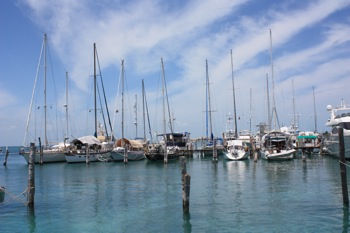
3. After you’ve started some research, ask questions online! But be sure you have specific questions generated from your research or you are not likely to get informative answers. Try questions like “Looking For Local Knowledge about Catamaran Marina, Rio Dulce – anyone been there recently? What did you think?” Even more specific would be better. You are really looking for bulletin boards/forums that are local to the area you’re interested in to ask your questions. But there are a few general forums that may be worth trying: Print out any info you get that’s worthwhile and take it with you along with your cruising guides. Be SURE to take e-mail addresses and telephone numbers of any marinas you find that look like possibilities — finding contact info while out cruising can be frustrating.
Noonsite’s World Cruising Club Forum
Seven Seas Cruising Association Discussion Boards
Latitudes & Attitudes Cruiser’s Forum
4. This much info gives you a head start! Now, throw off those dock lines and GO SAILING! 🙂
5. When you reach your cruising area, start asking questions – for example, when we left Florida to go to the Northwest Caribbean, I had done my research on the Rio Dulce. We were fairly certain that we were going to leave the boat in Tortugal Marina in the Rio. We had e-mailed the marina and gotten recent rates. The only thing that bothered us was that Tortugal did not have finger piers, the only access to the boat was either over the bow or stern, difficult for us with the Monitor Windvane occupying the stern space. When we arrived in Isla Mujeres, I started asking questions. I was lucky enough to be able to borrow another cruiser’s cruising guide with all of his notations and waypoints, which I diligently copied into my copy of the same cruising guide. If you do this, be SURE to know what the boat’s draft is that had the guide – I almost found out the hard way that one of the boats listed with waypoints in the guide only had a 3 1/2 foot draft and we have 5 1/2!
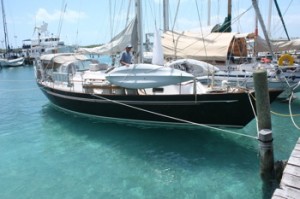
Now we started hearing good things about a marina called Catamaran in the Rio. Hmmmm… I didn’t really have them on my serious list!
6. Here are some random questions you may want to ask:
A. Safety? Security? Marinas outside the US have varying safety records. Can anybody walk the docks? We think it’s safer if the docks are either gated (rare) or somehow the general public is restricted. Also, security from the water which is more difficult – ask if those in the marina have had any problems. Be sure to get the latest local knowledge.
B. Is the marina in protected waters? You don’t really want your boat bouncing around like crazy with passing wakes, or wrap-around swell or waves breaking on a lee shore!
C. Can you get the boat in & out easily? What is the water depth? Do you have to wait for high tide to enter or leave the marina? Any other navigation hazards?
D. What about available caretakers? Have other boats had good (or bad) experiences with caretakers in this marina? Can you hire your own or do you have to use someone in the marina? How much does it cost?
E. Access to a major airport – how do you get to the airport, how difficult is it to get provisions or are they readily available with your dinghy, does the airport have reasonably priced flights to wherever you’re returning to. I love the Rio Dulce, I do NOT love the bus or van ride to the Guatemala City airport – for me, the 5 hour ride over the mountainous road is very scary. We chose to fly in & out of Flores, but I don’t think that flight exists any more. On the other hand, many of our friends didn’t think twice about the transit to the Guate airport.
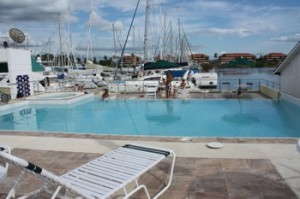
F. Repair — do you need work done on the boat? Can you do it yourself? What about getting parts? Do you have to bring them yourself because there’s no reliable or affordable shipping to the area? Are there reliable diesel mechanics or refrigeration or whatever in the area?
G. Do you have to have insurance? We have only been asked for proof of insurance at one marina outside the US, but all marinas here usually require it. If you carry insurance, be sure to take a copy of the policy with you on the boat!
H. Confirm that you will have electricity and water at the slip – you may want to ask about 30 amp vs 50 amp – with boats getting bigger these days, we were in a marina once that only had 50 amp service and we didn’t have a 30 amp adapter. Other amnenities we like include clean showers – preferably with hot water, clean restrooms, an onsite bar or restaurant is a plus – especially in places where it’s not safe to be out after dark, and a swimming pool is a REAL plus, especially in the tropics! You may also ask about bugs — how bad are the noseeums and/or mosquitoes? We were in one marina where the noseeums were so bad at dawn and dusk you almost couldn’t stand to be outside.
I. The “I like you” factor — do people that have stayed in the marina LIKE it? Like the people, like the ownership, like the overall experience. Do they have the reputation of nickel & diming you to death, charging extra for every little thing? Can you set something on the dock for longer than a half hour without marina management screaming at you? Yes, we have encountered both those situations!
7. Now you should be starting to get a feel for the area you’ll be approaching to leave your boat at the end of your cruising season. Keep asking questions … I like independent confirmation — when I ask different people and get the same answer, I start to pay attention. This was the case with Catamaran Marina in the Rio. Even though we were pretty sure we wanted to stay at Tortugal Marina, Catamaran had finger piers. Hmmm….
8. Does the marina either handle or assist you with all the paperwork necessary from the country perspective … will a cruising permit need to be renewed while you’re gone, is there any other paperwork that will need to be handled? Does the marina do it or can your caretaker do it? What are the charges? Can you handle it yourself ahead of time?
9. Once you actually arrive in the area, check out all the marinas in person. Ask all the questions you’ve been assembling. Don’t just talk to marina staff, ask if you can wander the docks and talk to boaters staying in the marina. Who owns the marina? Are they on site or absentee owners? Who is the marina manager? How long have they been there? Does the marina have a history of management turnover? If so, the instructions you left to the old management may not be implemented due to new management not having a clue about what was agreed upon.
We’ve visited dozens of marinas over the years. This is especially important in other countries. Keep in mind, internet photos and websites can be VERY deceiving. There is always a way to take a great tropical looking photo of one dock that’s been fixed up while the rest are in shambles, etc. It’s just as important to do the real in person research as it is the prior to arrival research.
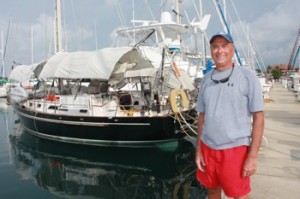
10. Ask what is included in the price and what is extra. You do not want to find this out the hard way after you’ve already switched to your “other life”! Find out what arrangements need to be made for payment – also make sure you arrange to get your caretaker regularly paid – which can be more difficult than it seems if you can’t just mail a check like in the US. Mailing a check … or shipping anything for that matter … is often not a consideration in other countries. Somehow the mail never arrives.
11. Take the time to get to know the available caretakers and pick the one that makes you the most comfortable. There will be another post on selecting a caretaker coming very soon, but at the very least, have a list of things you want him/her to do and how often they need to do it. Give them a copy and leave a copy on the nav desk. Discuss how they will communicate with you if there are issues – our experience is there are usually small issues – a stuck bilge pump, a smoke alarm that refuses to shut off, annoying all the neighboring boats and no one can find it, etc. 🙂
12. We always arrive at the marina where we’re going to leave the boat in enough time that we get to know others. It makes it so much easier to leave the boat when you’re not in and out in just a couple of days. Relax, have fun, learn about the area, take some tourist trips. Check out the available provisioning – that way you’ll know what items you may want to bring back with you because they’re unavailable locally. Now when you leave, you’ll be much more confident that the boat will survive your absence!
P.S. The first year we were out of the US commuter cruising, we chose Catamaran Marina for our home away from home. It was great, we loved it and went back for a 2nd hurricane season. If we return to the NW Caribbean, we would not hesitate for a minute to return to Catamaran.
If you have other tips for those trying to select the right marina for the first time outside the US, please leave a comment! THANKS!
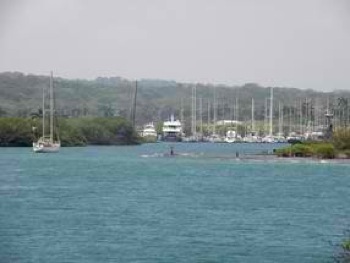
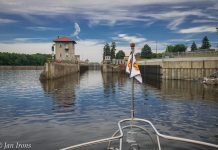

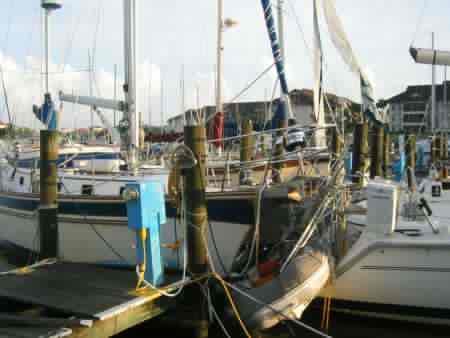







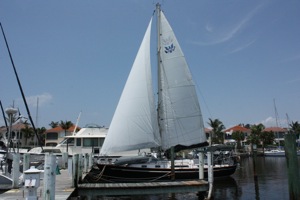
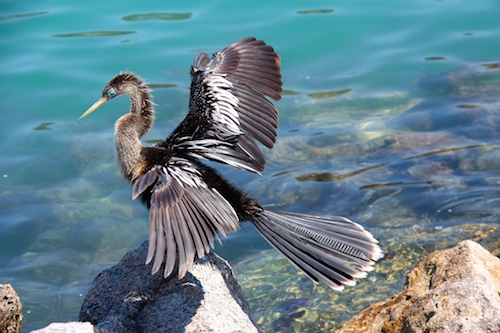
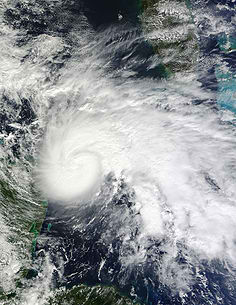
I like your advice to get to know the marina caretakers in order to find one you’re comfortable with. In order to do this, you’d probably want to go online to research local marine contractors. This could help you learn about the services that are available and give you the chance to read reviews in order to find a caretaker that is helpful.
I like how you talked about looking for a proper marina for your personal sailboat or a yacht–and making sure that it’s going to be the right one for your boat since there are a lot of factors to choose from. Another thing to keep in mind is that doing research before selecting a marina is always a good thing to do since it allows you to be able to choose where you would want to park your seacraft. If I had the choice to choose a particular marina, I would make sure that the area is safe enough to leave the boat in, as well as having some kind of protection against storms and the like, to prevent damage to the boat.